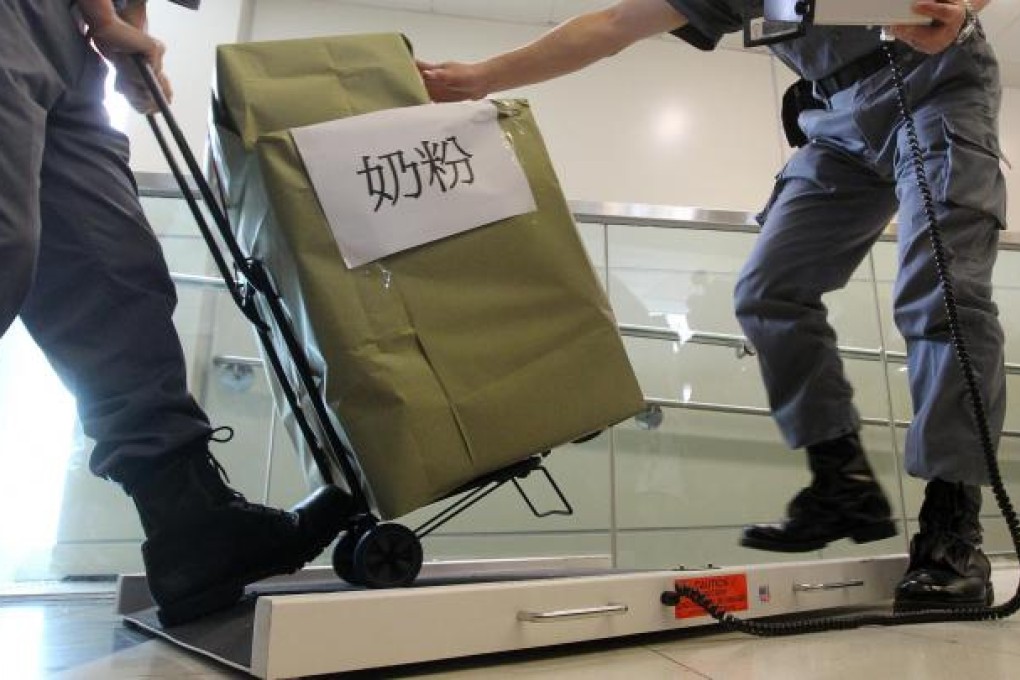MTR's new weight limit aimed at mainland traders
Traffic in parallel goods across the border faces a roadblock, in the form of a 32kg limit on how much can be carried onto Hong Kong's MTR

Parallel-goods traders were dealt another blow yesterday when the MTR Corporation announced a new baggage weight limit, which could cut by as much as two-thirds the amount of cargo they can take on trains.
The 32kg limit on passengers' luggage will come into force on Tuesday, with a focus on four busy stations near the border with Shenzhen - Sheung Shui, Fanling, Lo Wu and Lok Ma Chau.
All passengers going through the wide gates at those stations must have their bags weighed, and would be refused passage if their luggage exceeded the limit, the railway company said yesterday. Current MTR rules only restrict each person to one piece of luggage with total dimensions of no more than 170 cm.
The government has cracked down on these cross-border traders following protests by hundreds of residents in Sheung Shui last month. They are angry about traders clogging railway stations and pushing prices up.
Parallel traders buy legitimate goods in Hong Kong to smuggle over the border for sale, thereby evading import duties.